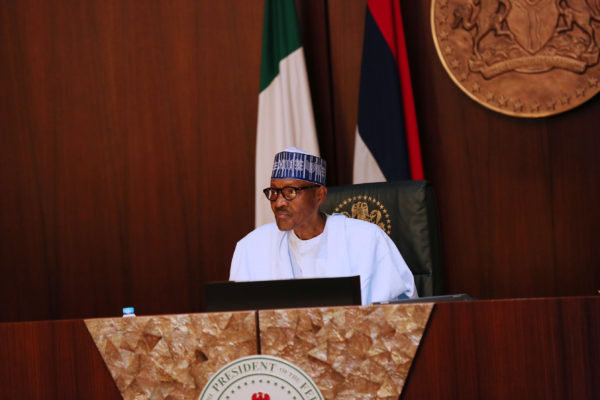Group to FG on mass killings: Engage community, multinational approach
President Muhammadu Buhari has been urged to personally lead the peace resolution efforts based on bilateral and multinational approach to end needless killings and armed violence in many parts of the country.
If the violence continues unchecked, Nigeria may slip into a killing field where the government and security agencies will become increasingly helpless, the National Working Group on Peace and Conflict Prevention, an initiative of the Journalists for Democratic Rights, said after its mid-week meeting in Lagos.
JODER said reports of violence and mind-boggling incidences of killings of people, including children, the aged and the physically challenged have been grossly underreported owing to lack of access to the media and official censorship.
The meeting was attended by 30 representatives of ethnic, religious and community-based groups spread across the country.
The Working Group in a report after the national meeting said verifiable evidence from volunteers in troubled communities indicate that an average of 50 people are killed every week in the Middle Belt hotspots.
It said the government appears not to have an effective peace initiative backed with an economic road map apart from procurement of sophisticated arms and ammunition.
The report was signed by Akinwale Kasali, Mallam Sulaiman Sanusi and Digifa Noel Werinipre.
The group said following the 18-month nationwide peace building programme with the support of the Ford Foundation, it was able to attain an important status to receive prompt and adequate reports on the killings and wanton destruction of lives, which assume dangerous proportion daily.
In April, the working group facilitated a meeting of representatives of community-based groups in the South and Middle Belt attended by about 120 representatives.
It urged the Presidency and the National Assembly to create a non-military multi-national and bilateral mechanism for the quick resolution of the festering crisis.
The Working Group said the Federal Government urgently needs to engage community and faith-based groups in troubled spots where violence rages, especially in the Middle Belt, as part of the steps needed to put an end to incessant killings.
The group said apart from the constructive engagement of local groups, there is the need for a civil multinational mechanism to work out modalities towards bringing the crisis to an end.
The fundamental causes of the growing crisis must be identified and the problems can be solved.
It said: “We are in a very tempestuous situation in Nigeria. The most important ingredients of living are the sanctity of human lives, the dignity of people and economic security. These factors are fading away. There cannot be prosperity unless there is stability. The future of democracy in Nigeria depends solely on how the country can stop mass killings and protect human lives.”
The group said it had written series of letters to the Presidency and the National Assembly, but regrets that no practical steps have been taken.
It observed that while Nigeria has a multi-national military framework, there is no equivalent of such trans-border community device driven by the civil population warning that the crisis cannot be solved mainly through naked military force.
It said the crisis in the Middle Belt has led to too many consequences, including a kind of arms race where people are ready to fight to a bitter end due to escalation of conflict arising from the loss of loved ones.
There is no adequate security for community bridge builders, while the violations of human rights of non-actors by security operatives diminish the prospect of public cooperation.
The group said: “Parties in the dispute are procuring sophisticated weapons to prosecute the attacks on each other. This comes as the direct effect of the lack of confidence in the security operatives who face strong suspicion of partisanship, the lack of political will to mop up illicit weapons and the absence of a neutral third party that enjoys the goodwill of the contending forces, constitute major challenges.”
The Working Group said it will continue to visit the troubled spots with the aim of obtaining useful information and ideas that will help bring an end to the fledging violence.
The group plans to hold its meetings across the six geopolitical zones.


